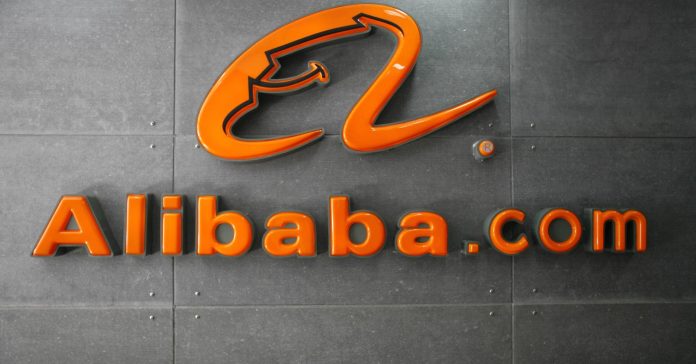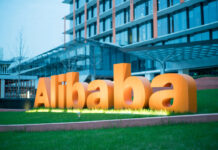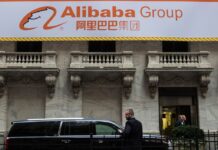
SHANGHAI: Chinese e-commerce giant Alibaba Group Holding Ltd cashed a record 213.5 billion yuan ($30.7 billion) in sales on Sunday during its 24-hour online retail frenzy Singles’ Day, but the event’s annual growth dropped to its slowest rate.
Shoppers in China and across the world snapped up hot items including iPhones, furniture and milk powder starting pre-dawn, with Alibaba recording roughly $10 billion in sales in the first hour after midnight.
Singles’ Day, also called “Double 11”, is the world’s biggest online sales event, outstripping the sales of U.S. shopping holidays Black Friday and Cyber Monday combined.
The Chinese event was originally a novelty student holiday to celebrate being single, countering Valentine’s Day but has since grown into a month-long online shopping festival that peaks with a 24-hour sale on November 11.
This year, the company surpassed last year’s full-day sales record of 168 billion yuan in just under sixteen hours.
Despite the record haul, the annual sales growth rate fell from 39 percent to 27 percent, at the low end of analyst estimates, and the slowest rate in the event’s 10-year history.
It comes as the company is grappling with a weaker sales outlook amid rising trade tensions between China and the United States that have taken a bite out of China’s economy.
Earlier this month it revised down its full-year sales outlook by 4-6 percent, sending further chills through the company’s stock price, which has dropped roughly 16 percent this year after almost doubling in 2017.
To compensate, the company will take in less commission from its platforms in the near term to retain brands and attract new buyers, it said.
Online sales growth is also slowing across the board in the country’s eastern mega-cities, including Shanghai and Beijing, and Alibaba said roughly 75 percent of new users last quarter were in “less developed” areas.
While small appliances and cosmetics were strong on Sunday, sales in big-ticket items including large appliances slowed alongside a downturn in the housing market, Alibaba vice chairman Joe Tsai told press.
“If people aren’t buying new homes, they aren’t buying appliances,” he said.
BIGGER AND BIGGER
Despite the milder growth, executives were upbeat on Sunday at a press event in Shanghai, attended by roughly 800 journalists who watched a live-streamed ticker of the sales.
“Today we reached 200 billion (yuan). But we have to change. We have to continue to change to reach 300 billion or 500 billion,” said Chief Executive Daniel Zhang, who is credited with being the architect of the original Singles’ Day sale.
Alibaba kicked off this year’s sales with a gala event that featured U.S. singer Mariah Carey, a Japanese Beyoncé impersonator and a Cirque du Soleil performance.
It’s expected to be the company’s final November sale with founder and Chairman Jack Ma at the helm, with Zhang set to take over as chairman next year, the company said in September.
During this year’s event the company said it worked with 180,000 brands across over 200 countries, and shortly before midnight on Sunday it had sent over a billion packages.
A disproportionately large number of sales were recorded in the first minutes of the 24-hour spending spree, when a huge queue of transactions went through for pre-ordered items.
The company settled roughly $1 billion within the first minute and 25 seconds after midnight.
Analysts said the sales continued to be cannibalized by competing events, including the “618” festival spearheaded by Alibaba competitor JD.com Inc in June.
JD.com, which also does a longer Singles’ Day sales event culminating on Nov. 11, said sales in the period had hit 159.8 billion yuan ($23 billion) this year, up about 26 percent from last year.





